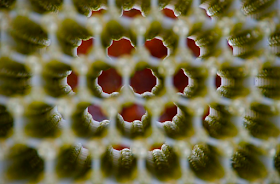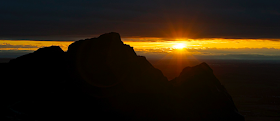Tuesday, 30 June 2020
Daily Photos no. 63: on the South Bank
During a trip to London for a christening we found time for a stroll along the Thames on a dull winter day. It's hard to take a picture that you haven't seen a million times, but the view from the London Eye was pretty spectacular. I really love the undercroft and the book stall under the bridge by the South Bank centre.
Monday, 29 June 2020
Daily photos no. 62: in the not-far country
It's still too hot, so I'm sticking with wintry scenes - in this case a walk in the hills above Mold in north-east Wales. It's a much overlooked area but full of modest beauty twinned with the scruffy estuarine edge lands of England and Wales, grim former resorts and cultural interest - its proximity to the Wirral, Chester and Liverpool but also to the rural heartlands of the Welsh language have produced a hybrid culture that challenges the myths both England and Wales tell about themselves. Niall Griffiths' novels make full use of this debatable land, particularly Wreckage, while Emyr Humphreys' A Toy Epic is a modernist classic, using the trajectories of three Flintshire boys to trace the emergence of this new hybrid nation. RS Thomas was the vicar in Manafon and later Eglwysfach, famously painting everything in the latter church black (although that might have been his artist wife Elsi's idea) and vocally expressing his disappointment in a flock that failed to live up to his imagination: or as he put it in the translation of 'Y Llwybrau Gynt', 'I had seen this tract of country from the train at dusk through romantic spectacles. I now found myself amongst tough, materialistic, hard-working people, who measured one another by the acre and the pound; Welshmen who had turned their backs on their cultural inheritance'
Lorna Sage's more recent memoir Bad Blood captures all the madness, repression and isolation of the border country (and including an even more monstrous priest than RST): it's an astonishing story of a family gone sour, a community without a culture and a bright girl desperate to get out.
All of which made a muddy ramble one January day all the more enjoyable.
Lorna Sage's more recent memoir Bad Blood captures all the madness, repression and isolation of the border country (and including an even more monstrous priest than RST): it's an astonishing story of a family gone sour, a community without a culture and a bright girl desperate to get out.
All of which made a muddy ramble one January day all the more enjoyable.
Friday, 26 June 2020
Daily photos no. 61: Oh the weather outside is frightful…
I hate this searing heat. I evolved to drag turf across a bog in driving rain, not roast in 20-degree plus heat. So today it's an all-snow affair to remind me of happier times.
Thursday, 25 June 2020
Daily photos no. 60: it's a fair Cop
One of my favourite places in the midlands is Mow Cop, a rocky outcrop in North Staffordshire overlooking the Cheshire plains all the way to Merseyside and north Wales. It's a funny old place - the village was a hotbed of Primitive Methodism (a progressive splinter group) in a sea of Wesleyan Methodism: between that and its relative isolation, rumours of a consanguinity started to circulate. There's a dramatic folly on top of the hill (which is known in cycling circles as the Killer Mile), the site of Primitive Methodism's birth in the early 19th century. It also features in Alan Garner's strange and powerful novel Red Shift.

















































